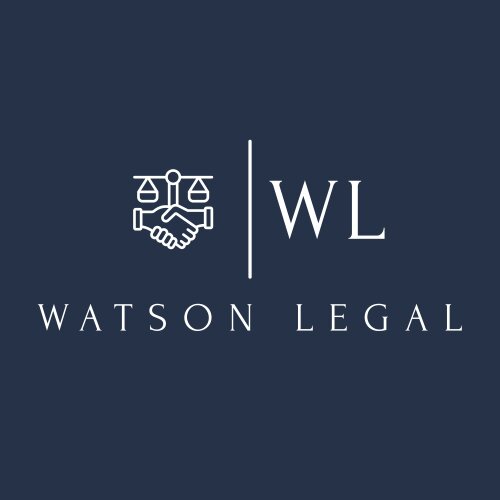Best Sexual Harassment Lawyers in Ireland
Share your needs with us, get contacted by law firms.
Free. Takes 2 min.
Or refine your search by selecting a city:
List of the best lawyers in Ireland
About Sexual Harassment Law in Ireland
Sexual harassment is a significant issue in any workplace and community, and Ireland has stringent laws to protect individuals from such misconduct. The primary legislation addressing this is the Employment Equality Acts 1998-2015, which explicitly prohibits sexual harassment at work. Sexual harassment in this context is defined as any form of unwanted verbal, non-verbal, or physical conduct of a sexual nature that affects a person’s dignity.
Further, the Irish legal framework includes protections under the Safety, Health, and Welfare at Work Act 2005, which places an obligation on employers to ensure that employees are not subjected to improper conduct or behavior. The legal landscape aims to foster an environment of respect and dignity, promoting equal and fair treatment for all individuals.
Why You May Need a Lawyer
Understanding the nuances of sexual harassment laws and pursuing action can be both complex and emotionally challenging. Here are common situations where legal assistance might be necessary:
- Filing a Claim: When reporting cases of harassment, legal guidance can help ensure proper documentation and escalation.
- Employment Issues: If your employment status is impacted by harassment or if you face retaliation, a lawyer can help protect your rights.
- Mediation and Settlement: Legal professionals can help negotiate settlements or mediate disputes to reach an amicable solution.
- Understanding Your Rights: A lawyer can help clarify your legal rights and obligations under Irish law.
- Complex Cases: In cases where sexual harassment intersects with other legal issues, such as discrimination, professional legal advice is crucial.
Local Laws Overview
The core legal instruments dealing with sexual harassment in Ireland include:
- Employment Equality Acts 1998-2015: These acts prohibit discrimination, including sexual harassment, in the workplace based on gender, civil status, family status, age, race, religion, disability, or sexual orientation.
- Safety, Health, and Welfare at Work Act 2005: This legislation mandates employers to provide a safe working environment and protect employees from harassment and harmful conduct.
- Protected Disclosures Act 2014: Offers protection to employees who report breaches of legal obligations, including harassment.
Employers in Ireland must implement comprehensive policies to prevent harassment and handle complaints effectively, ensuring the alignment with these legal frameworks.
Frequently Asked Questions
What constitutes sexual harassment under Irish law?
Sexual harassment is any unwanted verbal, non-verbal, or physical behavior of a sexual nature that can result in a person feeling humiliated, intimidated, or offended.
Can sexual harassment occur outside the workplace?
Yes, sexual harassment can occur in any setting, including educational institutions and public spaces, and is subject to the same legal frameworks as workplace harassment.
What should I do if I experience sexual harassment?
If you experience sexual harassment, it’s important to document the incidents, report them to a supervisor or HR, and consult with a legal professional if needed.
How do I report sexual harassment in the workplace?
Initially, attempt to address the issue internally through your employer’s grievance policy. If unresolved, consider consulting the Workplace Relations Commission (WRC) or legal advice.
What protections are in place for whistleblowers?
The Protected Disclosures Act 2014 provides rights to employees who report exploitation or violations, safeguarding them from retaliatory actions.
What is the role of the Workplace Relations Commission (WRC)?
The WRC is responsible for adjudicating disputes and providing guidance on employment rights, including issues about sexual harassment.
Can I be fired for reporting sexual harassment?
No, dismissing an employee for reporting sexual harassment is illegal under the Employment Equality Acts, and victims are protected from any form of retaliation.
Are employers responsible for harassment by customers or clients?
Employers are responsible for preventing and addressing harassment from all sources, including clients and customers, under the employment equality framework.
What types of compensation are available if my claim is successful?
Compensation can include monetary awards for financial loss and damages for emotional distress and loss of amenity caused by the harassment.
How long do I have to file a complaint?
Typically, a complaint should be lodged within six months of the last incident, though this period may extend under specific circumstances.
Additional Resources
For individuals seeking legal advice or support regarding sexual harassment, consider the following resources:
- Workplace Relations Commission (WRC): A resource for understanding rights and processing complaints.
- Irish Human Rights and Equality Commission (IHREC): Offers information and assistance on equality and human rights law.
- Citizens Information: Provides comprehensive advice on employment rights and protections.
- Equality Tribunal: Handles equality complaints and disputes, including sexual harassment issues.
- Local Solicitors: Consult with law firms that specialize in employment law for personalized legal advice.
Next Steps
If you believe you are experiencing sexual harassment and need legal assistance, start by documenting all incidents in detail, including times, dates, and any communication related to the harassment. Report the issue to your employer, ensuring they are aware and can take actions within their grievance procedure framework. Should the issue remain unresolved or you wish to seek compensation, contact a solicitor specializing in employment and equality law. Consulting organizations such as the Workplace Relations Commission (WRC) can also provide guidance and support on navigating legal channels to resolve your grievance.
Lawzana helps you find the best lawyers and law firms in Ireland through a curated and pre-screened list of qualified legal professionals. Our platform offers rankings and detailed profiles of attorneys and law firms, allowing you to compare based on practice areas, including Sexual Harassment, experience, and client feedback.
Each profile includes a description of the firm's areas of practice, client reviews, team members and partners, year of establishment, spoken languages, office locations, contact information, social media presence, and any published articles or resources. Most firms on our platform speak English and are experienced in both local and international legal matters.
Get a quote from top-rated law firms in Ireland — quickly, securely, and without unnecessary hassle.
Disclaimer:
The information provided on this page is for general informational purposes only and does not constitute legal advice. While we strive to ensure the accuracy and relevance of the content, legal information may change over time, and interpretations of the law can vary. You should always consult with a qualified legal professional for advice specific to your situation.
We disclaim all liability for actions taken or not taken based on the content of this page. If you believe any information is incorrect or outdated, please contact us, and we will review and update it where appropriate.
Browse sexual harassment law firms by city in Ireland
Refine your search by selecting a city.















